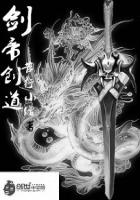But when it is preferred to virtue, it is desired for its own sake, and virtue is chosen only for its sake, and to effect nothing else than the attainment or preservation of bodily pleasure.And this, indeed, is to make life hideous; for where virtue is the slave of pleasure it no longer deserves the name of virtue.Yet even this disgraceful distortion has found some philosophers to patronize and defend it.Then virtue is united to pleasure when neither is desired for the other's sake, but both for their own.And therefore, as pleasure, according as it is subjected, preferred, or united to virtue, makes three sects, so also do repose, pleasure and repose combined, and the prime natural blessings, make their three sects each.For as men's opinions vary, and these four things are sometimes subjected, sometimes preferred, and sometimes united to virtue, there are produced twelve sects.But this number again is doubled by the addition of one difference, viz., the social life; for whoever attaches himself to any of these sects does so either for his own sake alone, or for the sake of a companion, for whom he ought to wish what he desires for himself.And thus there will be twelve of those who think some one of these opinions should be held for their own sakes, and other twelve who decide that they ought to follow this or that philosophy not for their own sakes only, but also for the sake of others whose good they desire as their own.These twenty-four sects again are doubled, and become forty-eight by adding a difference taken from the New Academy.For each of these four and twenty sects can hold and defend their opinion as certain, as the Stoics defended the position that the supreme good of man consisted solely in virtue; or they can be held as probable, but not certain, as the New Academics did.There are, therefore, twenty-four who hold their philosophy as certainly true, other twenty-four who hold their opinions as probable, but not certain.Again, as each person who attaches himself to any of these sects may adopt the mode of life either of the Cynics or of the other philosophers, this distinction will double the number, and so make ninety-six sects.Then, lastly, as each of these sects may be adhered to either by men who love a life of ease, as those who have through choice or necessity addicted themselves to study, or by men who love a busy life, as those who, while philosophizing, have been much occupied with state affairs and public business, or by men who choose a mixed life, in imitation of those who have apportioned their time partly to erudite leisure, partly to necessary business: by these differences the number of the sects is tripled, and becomes 288.
I have thus, as briefly and lucidly as I could, given in my own words the opinions which Varro expresses in his book.But how he refutes all the rest of these sects, and chooses one, the Old Academy, instituted by Plato, and continuing to Polemo, the fourth teacher of that school of philosophy which held that their system was certain; and how on this ground he distinguishes it from the New Academy,(2) which began with Polemo's successor Arcesilaus, and held that all things are uncertain; and how he seeks to establish that the Old Academy was as free from error as from doubt,--all this, I say, were too long to enter upon in detail, and yet I must not altogether pass it by in silence.Varro then rejects, as a first step, all those differences which have multiplied the number of sects; and the ground on which he does so is that they are not differences about the supreme good.He maintains that in philosophy a sect is created only by its having an opinion of its own different from other schools on the point of the ends-in-chief.For man has no other reason for philosophizing than that he may be happy; but that which makes him happy is itself the supreme good.In other words, the supreme good is the reason of philosophizing; and therefore that cannot be called a sect of philosophy which pursues no way of its own towards the supreme good.Thus, when it is asked whether a wise man will adopt the social life, and desire and be interested in the supreme good of his friend as in his own, or will, on the contrary, do all that he does merely for his own sake, there is no question here about the supreme good, but only about the propriety of associating or not associating a friend in its participation: whether the wise man will do this not for his own sake, but for the sake of his friend in whose good he delights as in his own.
So, too, when it is asked whether all things about which philosophy is concerned are to be considered uncertain, as by the New Academy, or certain, as the other philosophers maintain, the question here is not what end should be pursued, but whether or not we are to believe in the substantial existence of that end; or, to put it more plainly, whether he who pursues the supreme good must maintain that it is a true good, or only that it appears to him to be true, though possibly it may be delusive,--both pursuing one and the same good.The distinction, too, which is founded on the dress and manners of the Cynics, does not touch the question of the chief good, but only the question whether he who pursues that good which seems to himself true should live as do the Cynics.There were, in fact, men who, though they pursued different things as the supreme good, some choosing pleasure, others virtue, yet adopted that mode of life which gave the Cynics their name.Thus, whatever it is which distinguishes the Cynics from other philosophers, this has no bearing on the choice and pursuit of that good which constitutes happiness.For if it had any such bearing, then the same habits of life would necessitate the pursuit of the same chief good, and all-verse habits would necessitate the pursuit of different ends.
CHAP.2.--HOW VARRO, BY REMOVING ALL THE
DIFFERENCES WHICH DO NOT FORM SECTS, BUT ARE MERELY SECONDARY QUESTIONS, REACHES THREE DEFINITIONS OF THE CHIEF GOOD, OF WHICH WE MUST CHOOSE ONE.















